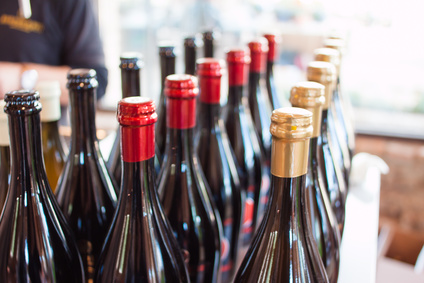Provinces take one small step to liberalize alcohol market

Montreal, July 20, 2018 – After the Supreme Court of Canada missed a golden opportunity to bring down internal trade barriers in April, it fell to the provinces and territories to address the problem. Yesterday, they took at least one small step in that direction by agreeing to increase the amount of alcohol an individual can transport from one jurisdiction to another.
“This is definitely good news,” says Alexandre Moreau, Public Policy Analyst at the MEI. “But it’s only one of the barriers to free trade that exist within Canada—and it’s only a relaxing of that barrier.”
Under the deal struck Thursday, the amount of alcohol individuals will be allowed to transport across borders will increase to two cases of wine, six litres of spirits, and six cases of 24 beers. This represents a doubling for most provinces and territories, and a much larger increase for New Brunswick, the Northwest Territories, and Newfoundland and Labrador, which have very low personal exemption limits for alcohol. (Alberta and Manitoba have no limits at all.)
Recall that Gerard Comeau, a New Brunswick resident, was stopped six years ago for having “imported” too much beer and spirits from Quebec. Fined by the police, he contested the charge and won his case before a trial judge who struck down a provincial law that dates back to the era of Prohibition, and that is contrary to the idea that led to Confederation. It’s worth noting that Mr. Comeau would still have exceeded the new limits with his 14 cases of beer.
“An overwhelming majority of Canadians think they should be able to buy and transport any legal product from one province to another,” points out Mr. Moreau. “We are one country, after all; we should be one common market as well.”
“At a time when Canada is trying to preserve the benefits that NAFTA provides to all Canadians, it’s encouraging to see that provincial and territorial leaders are taking at least this one step in the right direction when it comes to free trade within Canada. Now they need to make the same kind of effort on all the other remaining barriers to the free movement of alcohol and all other goods and services,” concludes Mr. Moreau.
* * *
The MEI is an independent public policy think tank. Through its publications and media appearances, the MEI stimulates debate on public policies in Quebec and across Canada by proposing reforms based on market principles and entrepreneurship.
-30-
Interview requests: Alexandre Bernier, Communications Coordinator, MEI, Tel.: 514-273-0969 ext. 2226, Cell.: 514-884-2947, Email: abernier@iedm.org

